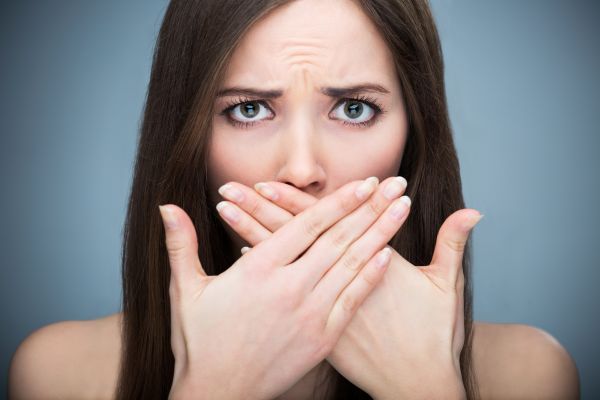What Causes Bad Breath?

Bad breath can be incredibly annoying to deal with, especially if the cause of the bad breath is unclear. Many who encounter others with bad breath assume it is due to the individual not taking good care of their mouth. However, there are various causes of bad breath, and it is not always the result of poor oral hygiene.
Bad breath causes
By understanding the various causes of bad breath, you can ensure you are able to pinpoint the exact cause and treat the bad breath quickly. The following are the four most common reasons people suffer from bad breath.
Poor oral hygiene
While bad breath does not necessarily suggest poor oral hygiene, it is indeed the leading cause of bad breath, and in many cases, there is no need to look further than one’s daily oral care routine when searching for the cause of their bad breath. When good oral hygiene is not practiced, a buildup of bacteria can develop inside the mouth, which can put off a bad odor if it lingers for an extended amount of time. It is important to brush several times each day, floss and use mouthwash daily to prevent bad breath from developing.
Dry mouth
Dry mouth is another very common cause of bad breath, and it can cause those who do practice good daily oral care to put off a bad odor with their breath. Saliva plays an intricate role in keeping breath smelling fresh, as it washes away bacteria inside the mouth, which would otherwise produce a bad odor. When the mouth is dry, meaning there is a lack of saliva in the mouth, bacteria can form on the teeth, gums and cheeks, resulting in bad breath. To avoid dry mouth, consider limiting the intake of coffee and other warm beverages and sipping on a bottle of water throughout the day.
Oral disease
Oral diseases such as periodontal disease can also lead to bad breath. Periodontal disease can occur for a wide variety of reasons. Most commonly, however, oral disease is the result of the accumulation of bacteria on the surface of the gums. When plaque and tartar form on the gums and gum line, it tends to cause a bad odor.
When this occurs, it is essential to treat the oral disease rather than simply brushing and using mouthwash more often, although practicing good oral hygiene is important for treating oral disease and bad breath as well.
Food and drinks
In some cases, the main culprit of bad breath can be found in what we consume on a daily basis. Certain food types, spices and drinks such as onions, garlic and coffee can produce bad breath. In order to avoid bad breath after consuming foods and drinks that have a strong odor, brush your teeth, floss and use mouthwash after consumption. By being able to identify and quickly treat bad breath, you can keep bad breath from becoming a constant, ongoing problem.
Are you considering treatment for bad breath in the Port Charlotte area? Get more bad breath information at https://dragonflydentalportcharlotte.com.
Check out what others are saying about our dental services on Google: Preventative Dental Care
Related Posts
There are several dental implant options for replacing missing teeth. A dental implant permanently replaces a missing tooth, saving smiles and helping people eat their favorite foods for years to come. Unlike other options for replacing missing teeth, dental implants do not require regular check-ups from a dentist.The three most common types of dental implants…
Within the past few decades, advances in dentistry have resulted in many options for replacing missing teeth. While all of these options help restore functionality and appearance to a person’s mouth, they also differ in several ways. Depending on a patient’s dental history and lifestyle, one replacement option may be better suited for them than…
Dental implants are a newer option for replacing missing teeth. They involve a titanium screw inserted into the jawbone, and then months later, once the jawbone has healed and the screw is fused into the bone, a crown is attached to the screw.It can be expensive to get dental implants, but since they offer full…
There are many options for replacing missing teeth that don’t include regular dentures. Implant-supported dentures are an affordable option compared to regular dentures and are better for your health. They can improve your diet, confidence, and overall health. These implants don’t require or use anything except clips to keep them in place. It can improve…
